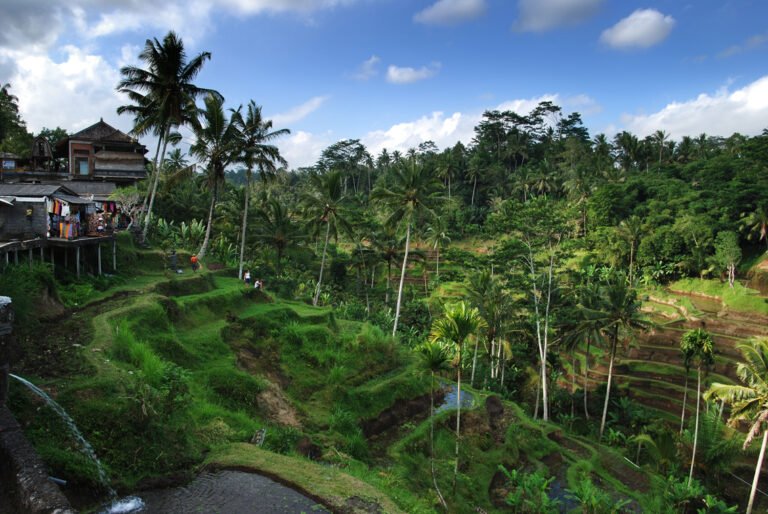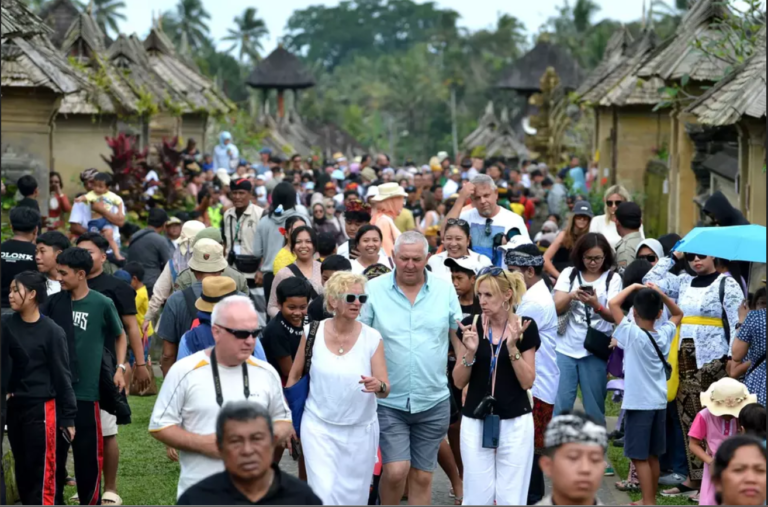Bali overload! The amazing Indonesian island, known for its beautiful beaches, cool places, serene rice terrace and peaceful temples, is now facing a bit of a jam. According to the World Travel & Tourism Council, Bali is on the list of worst overtourism destinations along with other busy cities like Amsterdam, Athens, Paris, and Miami. How can the Indonesian government overcome this issue?
Double-edged Sword
Unfortunately, that’s actually how the international media is seeing Bali recently. Overtourism has turned Bali to the strain. From disrespectful behavior by a small number of tourists to a growing environmental crisis like piles of garbage at the beaches and water scarcity. This isn’t just an aesthetic issue; it poses a serious threat to Bali’s delicate ecosystem.
International media is also buzzing about how all the influx of tourists is putting a strain on Bali’s infrastructure. Imagine traffic jams everywhere, public services overloaded, and even power outages! On top of that, while tourism used to be a good income source for many Balinese people, now the locals are dealing with skyrocketing prices for everything. Tourism becomes a double-edged sword because it messes with the quality of life for locals and makes things less enjoyable for visitors too.
The sheer volume of visitors can also create a sense of cultural dilution and overwhelm for residents who value their traditions and way of life. It’s a balancing act – tourism is crucial to Bali’s economy, but overtourism threatens its very essence.
Sustainable Approach
Indonesia downplays “overtourism” label, but seeks solutions. Minister of Tourism and Creative Economy, Sandiaga Uno said that even though tourist numbers in Bali haven’t yet reached pre-pandemic levels (around 30% below 2019 figures, the potential for overtourism remains a concern. This suggests an opportunity to manage tourist flow strategically and emphasizes the need to shift towards a more sustainable approach that attracts longer-stay visitors who contribute more meaningfully to the local economy.
To avoid the feeling of being overwhelmed by tourist influx, Indonesian government commit to their plan to diversify tourist destinations in Bali. This means showing some love to Ubud’s epic culture, Lovina Beach’s chill vibes, and the wild beauty of Buleleng and Karangasem. By promoting these areas beyond the usual crowded southern Bali like Kuta, Seminyak, and Nusa Dua, they’re hoping tourists will explore more and Bali can breathe a little easier.
Or perhaps, exploring alternative travel options like visiting Bali during the rainy season (October-April) can help distribute tourist numbers and offer a different perspective on the island’s beauty. Ultimately, the goal is to ensure Bali remains a cherished destination for generations to come, while also preserving its unique culture and environment. A win-win for everyone.
Responsible Tourism
The bottom line is, Bali needs to find a happy medium. Tourists bring in much-needed income, but the island can’t handle everyone wanting a piece of paradise at once. Let’s work together to improve Bali by putting individual responsibility at the forefront. By being responsible tourists, exploring beyond the usual hotspots, and respecting the local culture, we all can help Bali stay the magical place it is, both for visitors and locals.
Ready to explore Bali? Seven Stones Indonesia can streamline your visa application. For holiday or other social purposes, you can use a Visa on Arrival for your Bali adventure. However, if you like to explore business opportunities in Bali, Multiple Entry Permit or Business Visa is more suitable.
With our in-depth knowledge of Indonesia’s immigration laws and regulations, we’ll take the hassle out so you don’t need to worry about the legalities. Reach out today to learn more about our immigration services to start your Bali adventure. You can fill in our contact form below and fire away your burning questions about Indonesia’s immigration issues. Remember, responsible tourism starts with ensuring a legal stay. Seven Stones Indonesia can be your trusted partner to handle it.

















